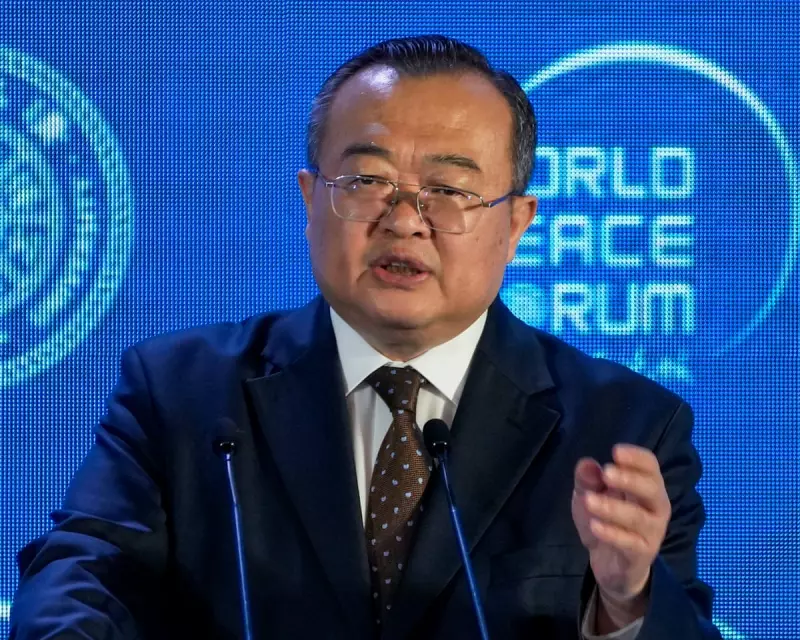
In a dramatic development that has sent ripples through diplomatic circles, China has abruptly replaced one of its most prominent international envoys, Liu Jianchao, following widespread reports of his detention. The unexpected move has sparked intense speculation about the reasons behind this high-level personnel change and what it signals about Beijing's current political climate.
Sudden Departure of a Key Diplomatic Figure
Liu Jianchao, who served as head of the International Liaison Department of the Chinese Communist Party, has been removed from his position in what appears to be a sudden and unannounced reshuffle. The department he led plays a crucial role in managing the party's relationships with foreign political parties and organisations.
The replacement comes amid unconfirmed but persistent reports that Mr Liu had been detained for questioning, though Chinese authorities have remained characteristically silent about the circumstances surrounding his departure. The lack of official explanation has only fuelled speculation among China-watchers and diplomatic analysts.
Background of the Ousted Diplomat
Liu Jianchao was no ordinary bureaucrat. As a career diplomat with extensive international experience, he had become one of China's most visible faces on the global stage. His portfolio included:
- Overseeing the Communist Party's foreign relations
- Managing delicate relationships with political parties worldwide
- Serving as a key spokesperson during sensitive diplomatic periods
- Playing a central role in China's Belt and Road Initiative engagements
International Reaction and Implications
The diplomatic community has been caught off-guard by this development, with many questioning what this means for China's foreign policy consistency. Liu was known for his relatively moderate approach and Western-friendly communication style, making him a valued contact point for many foreign diplomats.
Analysts suggest several possible interpretations of this move:
- A possible internal power struggle within Chinese leadership
- A shift toward more hardline foreign policy positions
- Individual disciplinary actions unrelated to broader policy changes
- Standard personnel rotation, though the timing and circumstances suggest otherwise
The Broader Context of Chinese Diplomatic Appointments
This reshuffle occurs against a backdrop of increasing scrutiny of China's diplomatic corps and their activities abroad. The replacement of such a high-profile figure inevitably raises questions about potential shifts in China's engagement strategy with the international community.
Western governments will be watching closely to see whether Liu's replacement signals a change in Beijing's approach to key relationships, particularly with European nations and the United States.
The development serves as a reminder of the opaque nature of personnel decisions within China's political system, where senior officials can disappear from public view with little explanation, leaving international observers to piece together the story from limited information.





